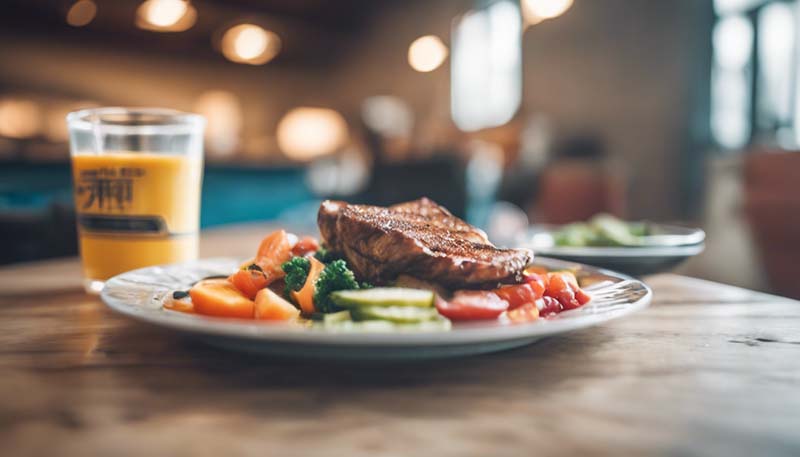The Pre-Workout Meal: What, When, and Why
2024-02-27
The Pre-Workout Meal: What, When, and Why
Introduction
The pre-workout meal is a crucial aspect of an athlete's nutrition plan. It provides the energy and nutrients needed to perform at optimal levels during a workout. The composition, timing, and purpose of the pre-workout meal can vary depending on the individual's goals, preferences, and the type of workout. This article delves into the importance of the pre-workout meal, what to eat, when to eat it, and why it matters for athletes of all levels.
The Importance of the Pre-Workout Meal
1. Energy Boost
The primary purpose of a pre-workout meal is to provide a source of readily available energy. Carbohydrates are the body's preferred energy source during exercise, and consuming them before a workout can help delay fatigue and improve performance.
2. Muscle Preservation
Eating a balanced pre-workout meal can also help protect muscle tissue from breakdown. When glycogen stores are low, the body may turn to muscle protein for energy, leading to muscle loss. Consuming protein before a workout can help spare muscle tissue and support recovery.
Advertisement
3. Improved Endurance and Performance
Research has shown that consuming a pre-workout meal can improve endurance and overall performance during high-intensity and prolonged exercise. This is particularly important for athletes training for events that require sustained energy output, such as marathons or long-distance cycling.
4. Enhanced Recovery
A well-timed pre-workout meal can also aid in post-workout recovery. Consuming nutrients before exercise can help replenish glycogen stores more quickly and provide the building blocks needed for muscle repair and growth.
What to Eat in a Pre-Workout Meal
1. Carbohydrates
Carbohydrates are the body's main source of energy during exercise. Opt for complex carbohydrates, such as whole grains, fruits, and vegetables, which provide a sustained release of energy. Examples include brown rice, sweet potatoes, and whole-grain pasta.
2. Protein
Protein is essential for muscle repair and growth. Including a source of protein in your pre-workout meal can help minimize muscle breakdown and support recovery. Lean meats, poultry, fish, dairy, legumes, and plant-based protein powders are all good options.
3. Fats
Fats should be limited in a pre-workout meal, as they can slow digestion and take longer to metabolize. However, healthy fats, such as those found in avocados, nuts, and seeds, can be included in moderation to support overall health and provide long-lasting energy.
4. Hydration
Staying hydrated is essential for optimal performance and recovery. Make sure to drink plenty of water before, during, and after your workout. Electrolyte drinks can also be beneficial, especially during high-intensity or prolonged exercise.
When to Eat Your Pre-Workout Meal
The timing of your pre-workout meal is just as important as what you eat. Aim to consume your meal 2-4 hours before exercise for adequate digestion and absorption of nutrients. If you have a sensitive stomach or prefer a smaller meal closer to your workout, you can opt for a lighter snack 30-60 minutes before exercise.
Why the Pre-Workout Meal Matters
The pre-workout meal is a vital component of an athlete's nutrition plan. It provides the energy and nutrients needed to fuel performance, protect muscle tissue, and support recovery. By understanding the importance of this meal and making informed choices about what, when, and why to eat, athletes can optimize their performance and achieve their fitness goals.

Conclusion
In conclusion, the pre-workout meal is a critical aspect of an athlete's nutritional strategy. By consuming a balanced meal that includes carbohydrates, protein, and a moderate amount of healthy fats, along with staying well-hydrated, athletes can ensure they have the energy and nutrients needed to perform at their best. Timing the pre-workout meal appropriately and understanding its importance can make a significant difference in workout performance and overall athletic success.
Comments